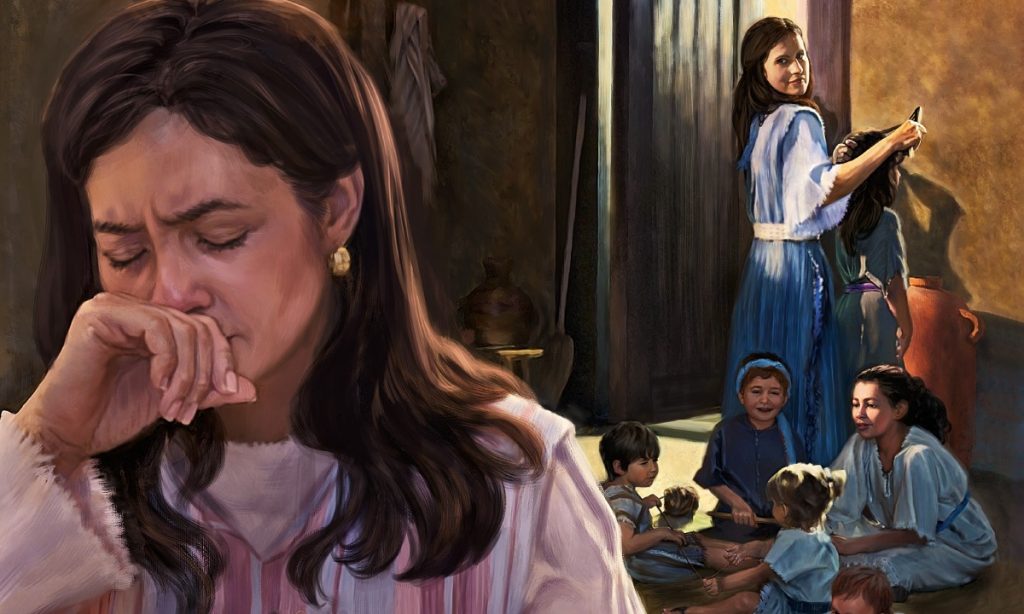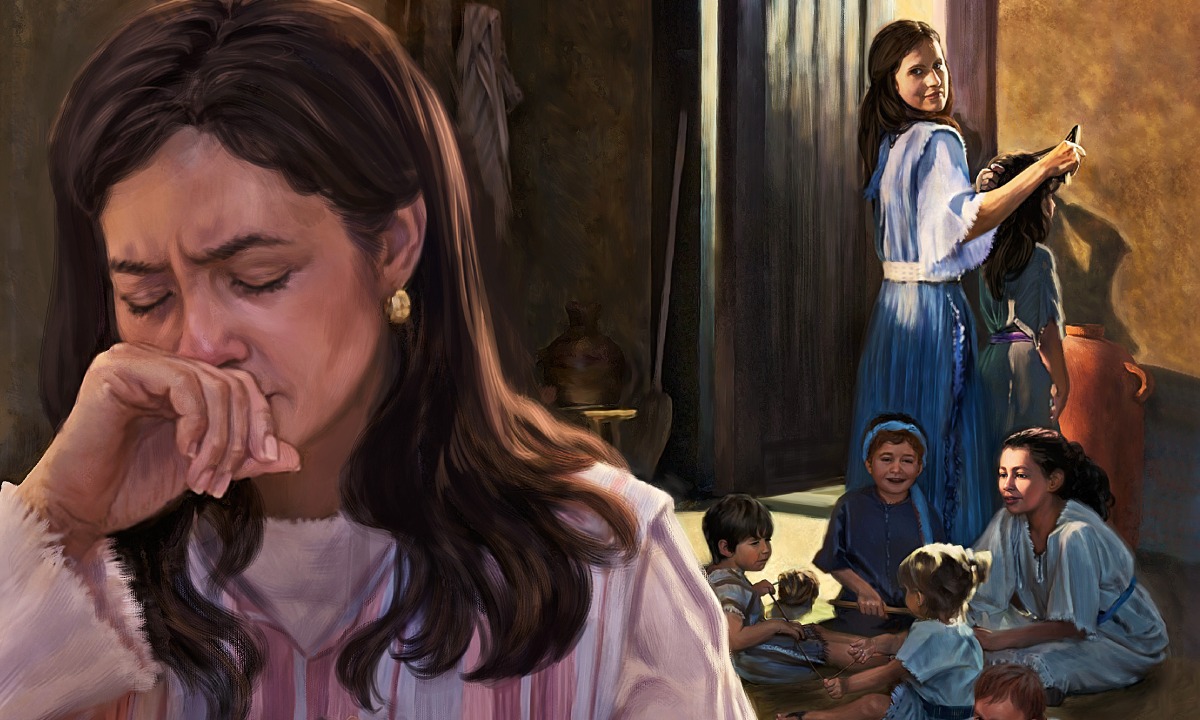Hannah’s song provides the theological introduction and orientation to the books of Samuel as a whole, just as David’s song provides a similar perspective as the work ends (2 Samuel 22). These bookends suggest the work of the final editors of this collection. Scholars suggest that the provenance of the psalm is from a later period, especially given the references to the king and the Lord’s anointed in verse ten which do not quite fit the pre-monarchical period. Perhaps it was included here because of the contrast of the barren and fruitful women in verse five which links the psalm to the story so far. It is not impossible, however, that the psalm originated with Hannah. Miriam in Exodus 15 and Deborah in Judges 5 are also portrayed as women psalmists who celebrate and reflect theologically on God’s works in song.
Whatever its origin, “the fact remains,” says Evans, “that the privilege of providing the main theological introduction to the whole account of the history of the Israelite monarchy is given to Hannah. That fact is probably not irrelevant” (30). Hannah did not abdicate her responsibility for theological reflection, and did not leave it up to the experts (i.e. Eli)—which perhaps was just as well. The story which follows includes many tales of the human quest for power, often with immense brutality, intrigues, and murder. The psalm insists that God is the only true sovereign, one who elects and disposes, who chooses and rejects, who upends and overturns human standards and expectations, and who will ultimately subject all human activity to judgement. Hannah’s song, coming from one who although somewhat wealthy, was poor and powerless in other ways, resonates with hope that God’s judgement will prevail, and that human arrogance and abuse of power will be brought to an end.
The psalm begins with her own exaltation and rejoicing, but quickly shifts to a meditation on the character and works of the God who has heard and answered her prayer. God alone is holy; there is none beside him (v.2). This is a full-throated rejection of religious syncretism in an environment where Israel continued to worship not only Yahweh but put their trust in the fertility gods as well. Yet only Yahweh is a rock providing security and salvation. He is the creator who set the world on its pillars (v.8; note the ancient cosmology), and he continues to rule his world with sovereign authority.
The major part of the psalm is a warning to the powerful and arrogant (v.3a): God will defend his “faithful ones” and “cut off” the wicked (v.9), he will “judge the ends of the world” (v.10). Human power will not prevail against the sovereign authority of Yahweh. The salvation that Yahweh brings is portrayed in images of historical rather than eschatological reversal. Thus, the weapons of the mighty are broken while the feeble are strengthened; the sated go hungry as the hungry are filled; the barren give birth while the mother of many is left forlorn. The agent of these reversals is the Lord. Historical developments are not accidental but subject to his providential control.
Yahweh kills and brings to life; he brings down to Sheol and raises up.
Yahweh makes poor and makes rich; he brings low, he also exalts.
The idea that Yahweh kills and makes alive is frightening, predicating a sovereignty to Yahweh we wish to deny. Yet it is precisely this activity that is highlighted in the following narrative which speaks of Yahweh’s intent to kill Eli’s sons in divine judgement for their wickedness (vv. 25, 34). The question of divine violence is one we shall encounter again in this study of Samuel. Here, the psalmist operates with a sense of comprehensive divine sovereignty.
Nor is the exercise of this sovereignty arbitrary. It is the high and mighty, the rich and powerful who are brought low and made poor, while it is the poor and humble, feeble and barren who are exalted and made rich. These acts of divine reversal reveal the way of Yahweh, and his divine care for those on the underside of human power and greed. As such, the song provides the framework by which the rest of the ensuing narrative (and its characters) must be understood.


 Read 1 Samuel 1
Read 1 Samuel 1